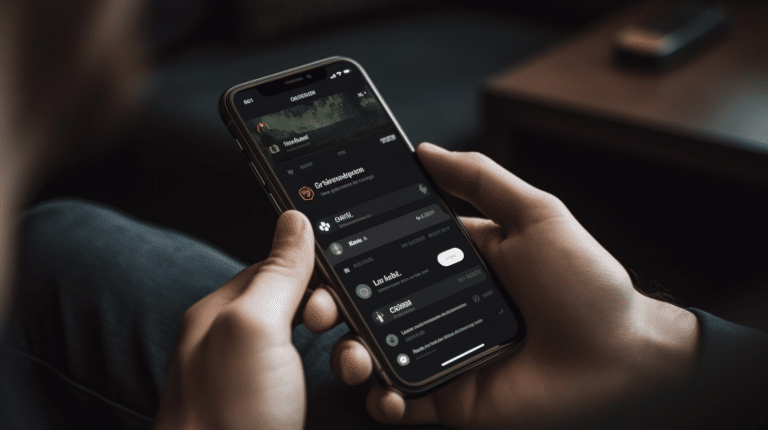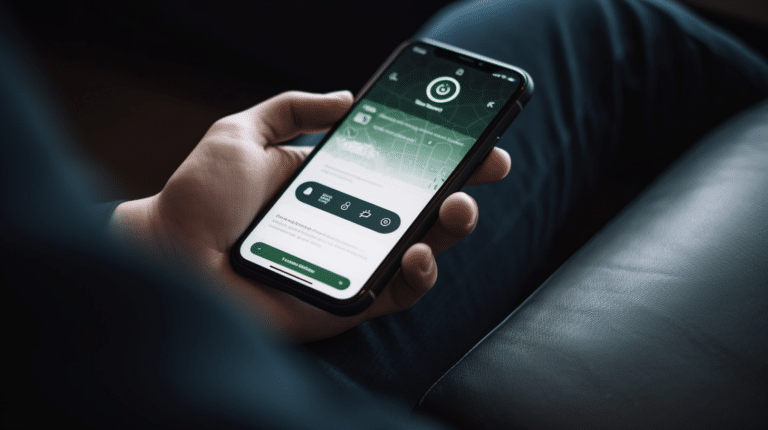Virtual private networks (VPNs) have become increasingly popular as a means to protect online privacy and security. By creating an encrypted tunnel between a user’s device and a remote server, VPNs are designed to mask the user’s IP address and make their online activities harder to track. But, do VPNs really work as effectively as they claim?
The answer largely depends on the specific VPN service being used, as well as the user’s goals and expectations. While VPNs can offer a certain level of privacy and security, their effectiveness varies greatly, with some free or low-quality VPNs potentially exposing users to more risks than benefits. Users must also be aware of the limitations of VPNs and consider alternative solutions for stronger security if needed. It’s essential to understand how VPNs work, their benefits, and potential drawbacks before making a decision to use one.
Key Takeaways
- VPNs can offer privacy and security, but their effectiveness depends on the specific service used.
- Some low-quality VPNs can potentially expose users to additional risks.
- Understanding VPN limitations and considering alternative solutions is crucial for strong online protection.
How VPNs Work
A Virtual Private Network (VPN) is a technology that provides a secure way to access the internet and protect users’ online privacy. It creates an encrypted tunnel between the user’s device and a remote VPN server, ensuring that all the data transmitted through this tunnel remains private and secure. In this section, we will discuss the two main components of a VPN: Encryption and VPN Protocols.
Encryption
Encryption is the process of converting plaintext data into an unreadable format, ensuring that only authorized parties can decrypt and access the information. VPNs use encryption algorithms to secure the data transmitted between the user’s device and the VPN server. This helps to protect the user’s IP address and online activities from being exposed to hackers, government authorities, or internet service providers.
There are various encryption algorithms used by VPNs, such as AES (Advanced Encryption Standard) and ChaCha20. These encryption methods provide different levels of security and performance, with AES being the most common and widely accepted standard in the VPN industry. The level of encryption provided by a VPN is typically measured in bits, with higher bit lengths indicating stronger encryption. For example, AES-256 is considered to be more secure than AES-128.
VPN Protocols
VPN protocols dictate how the user’s data is transmitted and encrypted over the internet. There are several VPN protocols available, each with their unique strengths and weaknesses. The choice of protocol depends on the user’s specific needs and the type of device being used.
Here are some of the popular VPN protocols:
- OpenVPN: One of the most widely used VPN protocols, OpenVPN is an open-source and highly configurable protocol. It offers a good balance between security and performance and is compatible with most platforms.
- IKEv2/IPsec: A fast and secure protocol, IKEv2 is often used in mobile VPN solutions. It provides strong encryption and supports the quick re-establishment of the VPN connection in case of network interruptions.
- L2TP/IPsec: This protocol offers good security but can be slower than other options due to the double encapsulation of data. L2TP/IPsec is commonly used on older devices or networks where OpenVPN is not supported.
- WireGuard: A relatively new VPN protocol, WireGuard offers simplicity, high performance, and strong security. It has started to gain popularity among VPN users and service providers due to its efficiency and ease of implementation.
By employing encryption and VPN protocols, a VPN can help ensure that your online activities remain private and secure. This includes masking your IP address, preventing third parties from monitoring your activities, and protecting your data from potential threats. However, it is essential to choose a reputable and reliable VPN service provider to ensure the effectiveness and performance of the VPN.
VPNs and Privacy
Virtual Private Networks (VPNs) are commonly used to enhance privacy and security when browsing the internet. This section will focus on the aspects of anonymity and web tracking with respect to VPNs.
Anonymity
VPNs create a secure and encrypted connection between your device and a VPN server, which may be located in a different country. This helps to protect your privacy by hiding your browsing data from your Internet Service Provider (ISP) and other third parties. A VPN can also mask your IP address, making it more difficult for third parties to track your online activities.
However, it is important to note that the level of privacy and anonymity offered by a VPN largely depends on the service provider itself. Some VPNs may keep log files of users’ activities, which can be accessed by the provider or external entities in certain circumstances. To maximize anonymity, it’s crucial to choose a reputable VPN provider with a clear privacy policy, preferably one that doesn’t keep any logs.
Web Tracking
While VPNs can enhance privacy by encrypting internet traffic and concealing IP addresses, they may not provide complete protection against all forms of web tracking. One such tracking technique is browser fingerprinting, which involves collecting information about your browser and device configuration to create a unique identifier, even when using a VPN.
To defend against browser fingerprinting and other tracking methods, users should complement their VPN usage with additional privacy tools like:
- Privacy-focused browsers: Examples include Brave, Mozilla Firefox, and Tor Browser, which come with built-in tracking protection.
- Browser extensions: Tools like Privacy Badger and uBlock Origin help to block trackers and ads, further increasing privacy.
- Cookie management: Regularly clearing cookies or using a browser extension like Cookie AutoDelete can reduce tracking by websites.
In summary, VPNs do contribute to enhancing privacy and anonymity online, but it’s important for users to understand their limitations and use additional tools to ensure a more comprehensive protection against web tracking.
Security and Protection
Cybersecurity
In the digital age, cybersecurity has become increasingly crucial. Virtual Private Networks (VPNs) play a vital role in enhancing online security by establishing an encrypted connection between the user’s device and a remote server. This secure connection shields user data from hackers and cybercriminals. However, it is essential to remember that, although VPNs offer a layer of protection, they are not foolproof.
A key aspect of VPN security is the use of encryption algorithms to ensure that the transmitted data remains private and confidential. One such algorithm used widely in VPNs is AES-256 (Advanced Encryption Standard with a 256-bit key length). This extremely secure and sophisticated encryption method is considered virtually unbreakable, rendering it suitable for protecting sensitive information.
Secure Passwords
An essential part of maintaining a secure online presence is the proper management of passwords. VPNs that require passwords for access need to follow robust password practices to protect against unauthorized access. Users are advised to create strong, unique passwords for their VPN accounts and update them regularly.
Here are some tips for creating a secure password:
- Use a minimum of 12 characters
- Include a mix of uppercase and lowercase letters, numbers, and special characters
- Avoid using easily guessable information, like names, birthdays, or common words
- Use a passphrase, a combination of unrelated words to form a long and secure password
It is also highly recommended to use a reputable password manager to store and manage passwords more efficiently and securely.
In conclusion, VPNs offer a significant level of security and protection for internet users, particularly in areas such as cybersecurity and secure password management. By using VPNs with robust encryption methods, like AES-256, and practicing proper password hygiene, one can safeguard their personal data from multiple online threats. For optimal security, it is important to utilize a well-established and trustworthy VPN service.
VPNs for Bypassing Regional Restrictions
Streaming Services
Virtual Private Networks (VPNs) have become a popular solution for users who wish to access streaming content that is not available in their geographical region. By connecting to a VPN server in another country, users can essentially “spoof” their location, which allows them to access content that would otherwise be blocked. For example, a user in the United States could connect to a VPN server in the United Kingdom to access shows that are exclusive to UK-based streaming platforms.
However, it is important to note that the effectiveness of a VPN can vary depending on the streaming service in question. Some streaming services have implemented measures to detect and block VPN connections, which can make it difficult for users to bypass regional restrictions consistently. Nonetheless, many VPN providers continue to work on geo-unblocking capabilities to help their users access a wider range of content.
Censorship
Another reason people use VPNs is to circumvent internet censorship, particularly in countries where access to certain websites and online services is restricted due to government policies. By connecting to a VPN server located in a country with fewer restrictions, users can gain access to blocked websites, such as social media platforms, independent news outlets, or messaging services.
VPNs are not a perfect solution for bypassing censorship, as some countries have strict laws against VPN usage and may even punish those who use such services. However, they still play a vital role in providing information and resources to people living under oppressive regimes. The effectiveness of VPNs in circumventing censorship can be studied through various techniques, such as DNS cache snooping. This research can help in understanding which domains are accessed through VPNs and how successful they are in bypassing government restrictions.
In summary, VPNs can be useful tools for bypassing regional restrictions and overcoming censorship, but their effectiveness depends on various factors, such as the streaming service or the country’s policies on VPN usage. Users should be aware of these limitations and research the best VPN providers to meet their specific needs.
VPNs and Torrenting
VPNs, or Virtual Private Networks, are widely used for protecting users’ online privacy and security. One popular use case for VPN services is torrenting—downloading copyrighted content through peer-to-peer (P2P) file sharing. However, whether a VPN can really enhance privacy and security during torrenting is an important question.
In general, a VPN can offer various benefits during torrenting, such as:
- Anonymizing your IP address: By connecting to a VPN server, your real IP address is hidden, thus helping protect your identity from being exposed to other peers or copyright enforcement agencies.
- Bypassing ISP throttling: Some Internet Service Providers (ISPs) throttle bandwidth for specific activities like torrenting to discourage the use of P2P file-sharing. A VPN can help bypass this throttling by encrypting your internet traffic and routing it through the VPN server.
- Circumventing geo-restrictions: Some torrent websites might be blocked in certain countries or regions. A VPN enables users to connect to a server in a different location, thereby bypassing such geo-restrictions on content.
Nonetheless, not all VPNs are effective for torrenting purposes. Certain factors can impact the ability of a VPN to provide privacy and security during torrenting:
- VPN leakages: Some VPNs might have IPv6 or DNS leakage issues, which can expose your real IP address to the torrent network or other internet services. A research paper titled “A glance through the VPN looking glass: IPv6 leakage and DNS hijacking in commercial VPN clients” discusses these problems in detail.
- Logging policies: Not every VPN maintains a strict no-logs policy. Some providers might store user activity logs, which could later be requested by authorities or third parties, thus defeating the privacy goal of using a VPN.
- Torrenting permissions: According to an empirical analysis of the commercial VPN ecosystem, not all VPN providers allow torrenting on their networks. As such, it is vital to ensure that the chosen VPN service explicitly permits P2P file-sharing.
In summary, while VPNs can potentially enhance privacy and security during torrenting, their effectiveness ultimately depends on factors such as leakages, logging policies, and torrenting permissions. Ensuring these aspects are addressed by the chosen VPN provider is crucial for secure and anonymous torrenting experiences.
Choosing the Right VPN
Service Reputation
When selecting a VPN service, it’s essential to consider their reputation. This includes factors such as reliability, customer satisfaction, and overall performance. Several well-known VPN services have established a strong reputation in the industry:
- ExpressVPN is a popular choice, known for its high-speed performance and solid customer support.
- NordVPN offers advanced security features and a great user experience.
- Mullvad is a privacy-focused service with transparent policies and practices.
- Hotspot Shield boasts user-friendly apps and fast speeds but may have some privacy concerns.
When evaluating the reputation of a VPN service, look for customer reviews, independent test results, and industry awards that demonstrate their commitment to excellence.
Terms and Conditions
It’s crucial to read the terms and conditions of each VPN service, as these agreements may contain vital information regarding their privacy policies and data usage practices. Specifically, pay attention to the following aspects:
- Data Logging Policy: Ensure that the VPN service you choose has a strict no-logging policy. This means that they won’t track or store any of your online activities while using their service.
- Jurisdiction: Consider the VPN service’s location and its implications on privacy. Some countries have strict data privacy laws, while others may be part of international agreements that could threaten your privacy.
- Payment Options: Select a VPN service that offers a range of payment methods, including anonymous options such as cryptocurrency.
- Refund Policy: Find a VPN service that provides a reliable money-back guarantee in case you are not satisfied with their performance or feel they don’t meet your needs.
By examining the terms and conditions, you can get a better understanding of the provider’s practices and ensure that you’re choosing a VPN service that aligns with your values and needs. Remember to always opt for a reputable and professional VPN service, as doing so will provide a higher level of security and protection for your online activities.
VPN Limitations and Alternatives
Limitations of VPNs
VPNs offer a valuable way to secure network connections and maintain privacy while browsing the internet. However, they also have some limitations to be aware of.
One of the limitations of VPNs is that they may slow down the connection speed due to encryption and the need to route traffic through remote servers. In some instances, users might experience a decrease in performance, particularly if the VPN provider’s servers are congested or located far away.
Another limitation is that VPNs are not foolproof when it comes to ensuring complete anonymity. While they do encrypt traffic and hide your IP address, some advanced tracking methods may still unveil your identity. Additionally, using a VPN in incognito mode will not guarantee total privacy, as incognito mode only masks browsing history but does not offer protection against advanced tracking techniques.
Finally, not all VPNs are created equal, and free or lower-cost solutions may have more restrictions or lack essential features. For example, Hola, a popular free VPN service, has faced security concerns and offers limited server options.
VPN Alternatives
For those who want to explore alternatives to traditional VPNs, there are a few options available.
- Tor: The Tor network is a free and open-source software that provides anonymous communication by routing your internet traffic through a series of volunteer-operated servers. While Tor offers substantial anonymity, it may not provide the same level of performance or ease of use as a VPN.
- WireGuard Protocol: WireGuard is a modern, open-source VPN protocol that focuses on simplicity and security. It’s designed to be easier to use and faster than traditional VPN protocols like OpenVPN. Though not all VPN providers have adopted WireGuard, it’s a promising alternative with some significant advantages in terms of performance and security.
- Proxy servers: Proxy servers act as an intermediary between your device and the internet. They can be used to mask your IP address and access geo-restricted content, just like a VPN. However, proxies generally do not encrypt your traffic, making them less secure than VPNs.
In conclusion, VPNs are an essential tool for ensuring privacy and security, but they are not perfect. It’s important to be aware of their limitations and consider alternatives like Tor, WireGuard, and proxy servers if they better suit your needs.
Frequently Asked Questions
How effective are VPNs actually?
VPNs are generally effective in providing a secure connection between your device and a remote server. They work by encrypting your data and sending it through a “tunnel” to the VPN server, which then forwards the traffic to its actual destination. This helps protect your online privacy and prevents third parties from tracking your activities. However, the level of effectiveness may vary depending on the VPN technology used.
What are the potential drawbacks of using a VPN?
Some potential drawbacks of using a VPN include slower internet speeds, compatibility issues with certain devices or software, and possible logging policies of the VPN provider. While most VPN providers aim to provide fast and reliable connections, the added encryption and rerouting of your traffic can sometimes lead to decreased performance.
What are the limitations of VPN protection?
VPNs are an effective security tool, but they are not foolproof. There may be some limitations, such as vulnerability to DNS leaks, potential monitoring by the VPN provider, and the fact that they cannot completely protect you from malware or phishing attacks. For maximum security, it’s essential to use a VPN in conjunction with other security measures, such as antivirus software and regular software updates.
Is investing in a VPN worthwhile?
Deciding whether to invest in a VPN depends on your individual needs and priorities. If you value online privacy, wish to bypass geo-restrictions, and want added security when using public Wi-Fi networks, then a VPN can be a valuable tool. Keep in mind that not all VPNs are equal; the level of protection and performance will depend on the specific VPN service you choose.
Which features should I consider when choosing a VPN?
When choosing a VPN, some key features to consider include speed, server locations, security protocols, privacy policies, and ease of use. Additionally, look for a VPN provider that offers a no-logs policy, strong encryption, and compatibility with your devices and platforms of choice. It’s also essential to compare prices and read user reviews to ensure you are getting the best value for your money.
Are there any legal concerns with using a VPN?
While using a VPN is legal in most countries, there may be some restrictions depending on your location. Some countries have banned or heavily regulated VPN usage due to censorship or national security concerns. It’s essential to familiarize yourself with the local laws and regulations before using a VPN. Additionally, keep in mind that using a VPN for illegal activities is still against the law and could lead to consequences.
Conclusion
VPNs, or Virtual Private Networks, are designed to provide a secure and private connection between your device and the internet. They function by encrypting your data and routing it through a server in a different location, thus masking your IP address and making it difficult for third parties to track your online activities.
In Performance evaluation of VPN with different network topologies, it was concluded that VPN performance can be improved depending on the network topology used. This indicates that not all VPNs are created equal, and their effectiveness can be influenced by the underlying architecture.
Furthermore, users need to be cautious when selecting a VPN provider. According to a study on the experience of VPN users with software expertise in Sweden, there is some doubt as to whether certain VPN providers actually deliver on their privacy and security promises. It is essential for users to do thorough research and select reputable providers to ensure their data remains protected.
While VPNs can be a useful tool for enhancing privacy, it is important to note that no system is entirely foolproof. Potential vulnerabilities and breaches can still occur despite using a VPN service. Consequently, users should adopt additional security measures such as appropriate password management, regular software updates, and multi-factor authentication for comprehensive online protection.
In conclusion, VPNs can be effective in providing secure and private connections, but their performance and reliability may vary depending on the provider and network architecture. Users must remain vigilant in selecting reputable services and incorporating additional security measures to ensure comprehensive privacy and protection online.






